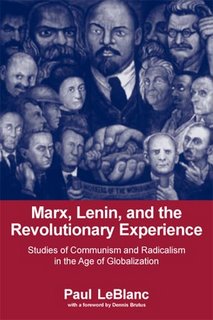
Congratulations to Auntie Vulgar, The Karl Marx Blog of the Week.™
Fantastic blog by a student studying Social Theory his blog focuses on critical Theory "to be clear, by 'critical-theory' I generally mean the various Marxist schools."
Included are tags for Reading Capital, though unlike my aborted attempts to read Grundrisse, as grad student his is quite serious.



